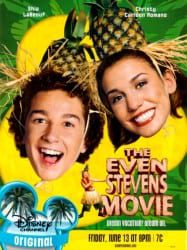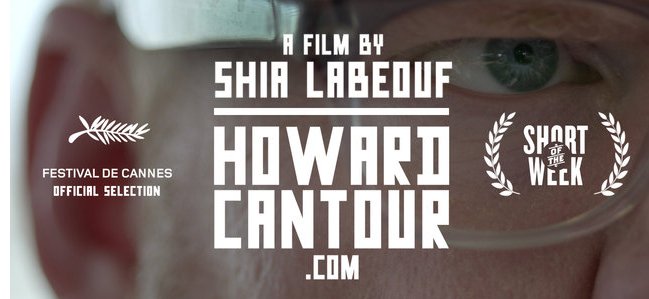An Open Letter to Shia LaBeouf
 Dear Shia LaBeouf,
Dear Shia LaBeouf,
I am writing today as both a concerned citizen and as an angry citizen.
Up until now I’ve been pretty quiet about your recent plagiarism follies. I try to keep the conversation here more about preventing and dealing with plagiarism than specific scandals. So, other than a post on the iThenticate blog last month and a brief mention in an article here, I’ve stayed quiet.
But your recent actions, quite frankly, have made that impossible. At every step in your plagiarism scandal you have doubled down on your misdeeds and made them worse. You turned what should ahve been a fairly minor and boring plagiarism scandal into a circus and, while this has definitely come at your expense, it’s also come at the expense of those you’ve lifted from, in particular Daniel Clowes.
Your ordeal has gone from being a humdrum Hollywood scandal, to being a joke, to being a bizarre piece of performance “art” and now, finally, being an insult to creators everywhere.
So while I actually agree with Rachel Edidin at Wired that we should stop talking about you, I do have one thing I want to say before I (hopefully) say my last word on this publicly.
The message is this: The joke is over, it’s not funny, it’s not creative and the time has come to start mending bridges letting everyone, including yourself, move on.
A Quick Recap
 To quickly recap everything that happened to date, the trouble began last month when you released your short film, HowardCantour.com, online. The film had been on the festival circuit for a while, but it was the first time a wide audience had seen it.
To quickly recap everything that happened to date, the trouble began last month when you released your short film, HowardCantour.com, online. The film had been on the festival circuit for a while, but it was the first time a wide audience had seen it.
Almost immediately people recognized the similarities between the movie and a graphic novel by author Daniel Clowes entitled Justin M. Damiano. This included not just themes, but dialog and even some “storyboarding” from the graphic novel.
The film quickly came down and an apology was issued via Twitter. However, that apology turned out to be plagiarized from a Yahoo Answers reply. Then followed another around of apologies, this time though, the words were lifted from Tiger Woods, Kanye West and others.
At this point, many began to wonder aloud if the plagiarism were some form of trolling, which certainly seemed possible.
But then, on New Year’s day, the story took a turn from the bizarre to the insane as a skywriter wrote the words “I am sorry Daniel Clowes” in the skies above Los Angeles. Unfortunately, the gesture was pretty meaningless as Clowes lives in Oakland, more than 350 miles away from Los Angeles.
However, the very next day, things turned a bit more hostile as in an interview with Bleeding Cool News, you declared that “Authorship is censorship” indicating that you rampant plagiarism was some sort of protest of both authorship conventions and intellectual property.
Then came more criticism and more plagiarism as you lifted from Lena Dunham to “apologize” for the skywriting.
Finally, and most recently, it seems your attention has been turned back to Daniel Clowes, tweeting, hopefully jokingly, about your next project ‘Daniel Boring”, which is a reference to another one of Clowes’ works. That apparently drew a response from Clowes’ attorney as, shortly thereafter, you tweeted a cease and desist letter that he sent to your lawyer.
While there’s much more to the scandal, including news that some of your past comics may have been plagiarized too, the overall arc of the scandal is clear and it is one of plagiarism, antagonism and disrespect.
A Hollow Point
While I believe there is a lot of room for artistic exploration of issues of plagiarism and authorship, your message and tone both ring hollow and seem vindictive rather than intellectual.
First, you are easily one of the greatest beneficiaries of modern copyright law. Your entire career and your platform were built, quite literally, on copyright law. From Even Stevens at Disney to Transformers with Paramount, you’ve worked with some of the most staunch supporters of intellectual property and have profited wildly from your the works you helped create.
Without intellectual property and authorship, you would not have the platform with which to bash those ideals.
Second, you only began to discuss your views after you were accused of a very serious plagiarism and copyright infringement. Just as many students, when caught plagiarizing, trot out “authorship is censorship” style excuses, it comes across less as an attempt to discuss difficult issues and more an attempt to deflect blame.
Finally, your response comes across to be vindictive and petty. Plagiarizing apologies, making a grand spectacle of skywriting another one and posting jokes about plagiarizing more of Clowes’ work is, frankly, nothing more than an attempt to antagonize him more.
Even if you truly feel you’ve done nothing wrong, you have to also acknowledge that Clowes has done nothing wrong. He didn’t make the initial allegations of plagiarism, he didn’t ask for you to use his work as the basis of a movie and he has done nothing more than seek out counsel to protect his copyrights, which is his legal right.
Until his cease and desist letter, everything that was done involving Clowes was done to him, not by him. He is not at fault and, at the very least, does not deserve further antagonism. Even with his most recent actions, he’s trying to resolve this dispute quietly and privately, a wish that you keep denying him.
If you respected him and his work enough to make it the basis for a movie, something you’ve admitted, you should also respect him enough to honor his wishes for privacy and peace.
Bottom Line
Many believe that this is, much like Joaquin Phoenix’s “meltdown” in 2009, is a manufactured scandal that you’re hoping will promote your career. If that’s the case, this has been a horrible approach.
For one, adding “plagiarist” to the adjectives others use about you rarely improves your standing. Second, your newfound interest in intellectual property and authorship is so transparent and poorly-stated that even those who agree with what you are saying are eager to distance themselves from you.
Finally though, it’s a scandal that is actively hurting another creator, one you claim to admire and respect. Even if you feel that “authorship is censorship” and that your film didn’t come at Clowes’ expense (something I would disagree with strongly), the continuation of the scandal clearly has and the cease and desist letter you tweeted shows just how unwanted this attention is to Clowes.
If this is a charade, it’s time to end it. If it’s not, then it’s time to walk away from the issue for a bit and let your lawyer do the talking. Your actions are doing nothing to help you, your stated opinions or Daniel Clowes.
In short, it’s time to do the right thing for the first time during this scandal.
Sincerely,
Jonathan Bailey
Want to Reuse or Republish this Content?
If you want to feature this article in your site, classroom or elsewhere, just let us know! We usually grant permission within 24 hours.
